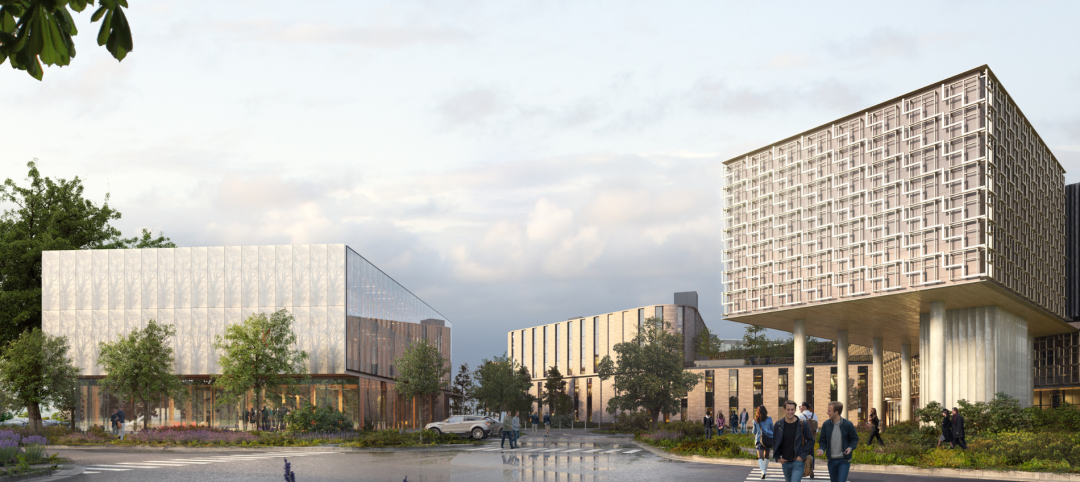With 528 buildings totaling 112.5 million sf, Los Angeles topped the EPA's ranking of the U.S. metropolitan areas with the most Energy Star certified buildings in 2012. Rounding out the top five are Washington, D.C. (462 buildings); Chicago (353); New York (325); and Atlanta (304).
In 2012, more than 20,000 Energy Star certified buildings across America helped save more than $2.7 billion in annual utility bills. The cumulative number of Energy Star certified buildings has increased by more than 24 percent compared to last year, representing more than 3 billion square feet of floorspace nationwide. In 2012 alone, more than 8,200 buildings earned EPA’s Energy Star certification.
Phoenix broke into the top 10 for the first time, with 202 buildings. Boston, a newcomer to the list last year, held on to 10th place, with 11th place Philadelphia not far behind. Seventh-place Houston, with 241 buildings, is home to one in particular that stands out: Phoenix Tower, a 34-story office building, has earned EPA’s Energy Star 14 times—more than any other building in America.
Here are the top 25:
1. Los Angeles - 528 buildings
2. Washington, D.C. - 462
3. Chicago - 353
4. New York - 325
5. Atlanta - 304
6. San Francisco - 291
7. Houston - 241
8. Dallas-Fort Worth - 214
9. Phoenix - 202
10. Boston - 188
11. Philadelphia - 174
12. Denver - 161
13. Cincinnati - 137
14. Charlotte - 133
14. Minneapolis-St.Paul - 133
15. San Diego - 123
16. San Jose - 114
17. Seattle - 108
18. Miami - 104
19. Detroit - 100
20. Sacramento - 97
21. Indianapolis - 91
22. Albuquerque, N.M. - 89
23. Kansas City, Mo. - 82
23. Portland, Ore. - 82
24. Riverside, Calif. - 69
25. Virginia Beach, Va. - 67
Download a PDF of the full list.
Related Stories
Shopping Centers | Aug 22, 2023
The mall of the future
There are three critical aspects of mall design that, through evolution, have proven to be instrumental in the staying power of a retail destination: parking, planning, and customer experience. This are crucial to the mall of the future.
Healthcare Facilities | Aug 21, 2023
Sutter Health’s new surgical care center finishes three months early, $3 million under budget
Sutter Health’s Samaritan Court Ambulatory Care and Surgery Center (Samaritan Court), a three-story, 69,000 sf medical office building, was recently completed three months early and $3 million under budget, according to general contractor Skanska.
Healthcare Facilities | Aug 18, 2023
Psychiatric hospital to feature biophilic elements, aim for net-zero energy
A new 521,000 sf, 350-bed behavioral health hospital in Lakewood, Wash., a Tacoma suburb, will serve forensic patients who enter care through the criminal court system, freeing other areas of campus to serve civil patients. The facility at Western State Hospital, to be designed by HOK, will promote a holistic approach to rehabilitation as part of the state’s vision for transforming behavioral health.
Vertical Transportation | Aug 17, 2023
Latest version of elevator safety code has more than 100 changes
A new version of ASME A17.1/CSA B44, a safety code for elevators, escalators, and related equipment developed by the American Society of Mechanical Engineers, will be released next month.
Adaptive Reuse | Aug 16, 2023
One of New York’s largest office-to-residential conversions kicks off soon
One of New York City’s largest office-to-residential conversions will soon be underway in lower Manhattan. 55 Broad Street, which served as the headquarters for Goldman Sachs from 1967 until 1983, will be reborn as a residence with 571 market rate apartments. The 30-story building will offer a wealth of amenities including a private club, wellness and fitness activities.
Sustainability | Aug 15, 2023
Carbon management platform offers free carbon emissions assessment for NYC buildings
nZero, developer of a real-time carbon accounting and management platform, is offering free carbon emissions assessments for buildings in New York City. The offer is intended to help building owners prepare for the city’s upcoming Local Law 97 reporting requirements and compliance. This law will soon assess monetary fines for buildings with emissions that are in non-compliance.
Office Buildings | Aug 15, 2023
Amount of office space in U.S. is declining for the first time, says JLL
In what is likely a historic first, the amount of office space in the U.S. is forecast to decline in 2023, according to Jones Lang LaSalle. This would be the first net decline according to data going back to 2000, JLL says, and it’s likely the first decline ever.
Fire-Rated Products | Aug 14, 2023
Free download: Fire-rated glazing 101 technical guide from the National Glass Association
The National Glass Association (NGA) is pleased to announce the publication of a new technical resource, Fire-Rated Glazing 101. This five-page document addresses how to incorporate fire-rated glazing systems in a manner that not only provides protection to building occupants from fire, but also considers other design goals, such as daylight, privacy and security.
Office Buildings | Aug 14, 2023
The programmatic evolution of the lobby
Ian Reves, Managing Director for IA's Atlanta studio, shares how design can shape a lobby into an office mainstay.
Contractors | Aug 14, 2023
Fast-tracking construction projects offers both risk and reward
Understanding both the rewards and risk of fast-tracking a project can help owners, architects, engineers, and contractors maximize the benefits of this strategy and can bring great reward on all fronts when managed properly.

















